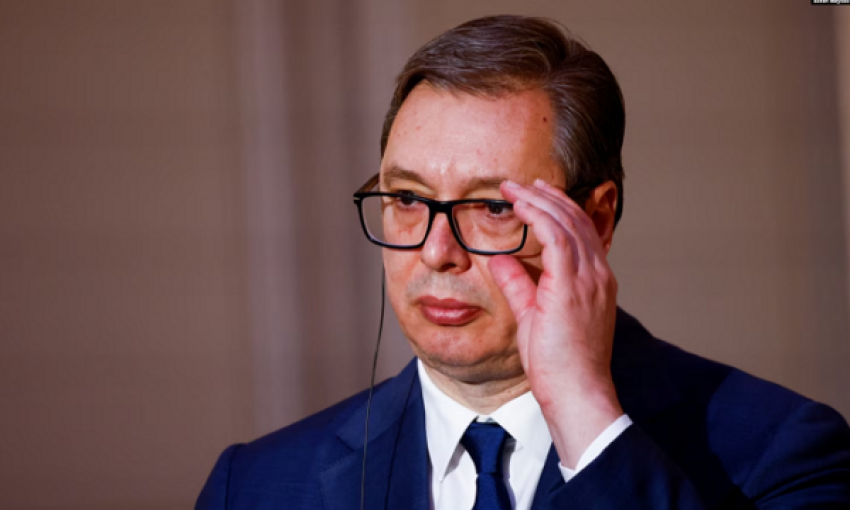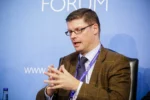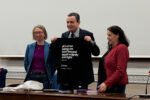Serbian President Aleksandar Vučić faced tough questions during an interview with BBC’s Hard Talk, where he was asked about topics ranging from Kosovo and Srebrenica to Serbia’s ties with Russia. During the interview, host Stephen Sackur suggested that Serbia de facto recognizes Kosovo, a claim Vučić flatly denied.
The Serbian president also reiterated his commitment to maintaining a partnership with Russia, despite international criticism.
Promoting the Idea of ‘Greater Serbia’
Vučić appeared on the BBC to discuss Serbia’s position on the global stage, with Sackur probing his views on whether Serbia leans toward the West or continues its alignment with Russia and China. The interview began with Sackur questioning Vučić’s past involvement with nationalist radicals during the breakup of Yugoslavia.
“Back then, we were ideologically committed to the idea of a ‘Greater Serbia,’ which brought the Balkans to dark times, war, and loss of lives. I have changed since then, but I don’t entirely agree with your view of who’s responsible for the problems in the Balkans,” Vučić stated, adding that his focus now is on economic progress and serving the Serbian people.
On Srebrenica
When asked about the 1995 Srebrenica massacre, Vučić acknowledged its horror but stopped short of using terms that could provoke political debates.
“Srebrenica was terrible, and I’ve always been ready to pay tribute to the victims. But I am not willing to discuss it in a way that creates new political problems,” he said.
Kosovo Dispute and European Union Membership
The discussion then turned to Kosovo, with Sackur stating that Serbia’s path to EU membership hinges on recognizing Kosovo. Vučić disagreed, emphasizing that Serbia has never officially recognized Kosovo’s independence.
“We’ve never acknowledged Kosovo, not in writing or speech. We’re trying to live in peace,” Vučić said. He also criticized NATO’s 1999 bombing campaign and European nations for allegedly violating Serbia’s constitutional borders by recognizing Kosovo.
Sackur pointed out that Serbia would not join the EU without resolving the Kosovo issue, but Vučić maintained that Serbia would continue striving for economic progress while refusing to compromise on its sovereignty.
Russia and the West
Sackur also highlighted Serbia’s ties with Russia, asking about Vučić’s position on balancing relations between East and West. Vučić defended Serbia’s policies, claiming the country had supported Ukraine more than other Balkan nations when necessary.
“We buy less Russian oil than other countries. I don’t sit on two chairs—I sit on the Serbian chair, and I’m proud of that,” Vučić declared.
Balancing Act
When asked about Serbia’s ultimate direction—toward the EU or Russia and China—Vučić said he aims for EU membership while preserving ties with Eastern partners.
“Our ultimate goal is EU membership, but that doesn’t mean we’ll abandon our partnerships in the East. I always tell the truth, no matter whom I’m speaking to, and that’s why people may love, hate, or despise me—but they respect me,” Vučić concluded.







